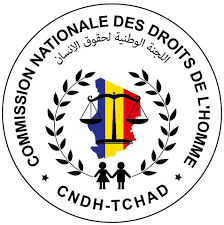APA-Ndjamena (Chad) This request comes in the aftermath of the adoption of the general amnesty law for offences committed during the demonstrations of October 20, 2022.
The adoption of the amnesty law for all perpetrators of offences, both civilian and military, committed during the events of October 20, 2022 continues to provoke reactions. After the political class and civil society, the National Human Rights Commission (CNDH) has also broken its silence.
In a press release published on Wednesday December 6, the CNDH welcomes the adoption of this law. But it also raises the question of compensation for victims. For the CNDH, the absence of reparation constitutes “impunity and an obstacle to justice.” “Victims are abandoned to their sad fate. Mutilated for life, orphans, missing persons, dislocated families, etc.”, writes the CNDH.
To alleviate the plight of these victims, the CNDH encourages the government to set up a mechanism to repair the damage suffered, or to organize transitional justice. “This will contribute to the national reconciliation so much desired by all Chadians,” asserts the CNDH, which says it is ready to support the government in this direction.
As a reminder, on October 20, 2022, a demonstration against the extension of the transition was put down in bloodshed. According to various sources, between 75 and 300 people died that day. Nearly 500 others were tried, sentenced and later pardoned.
On November 23, following the Kinshasa Agreement signed between the Chadian government and the ‘Les Transformateurs’ party, an amnesty law was passed, erasing all prosecutions and convictions.
CA/ac/fss/abj/APA


